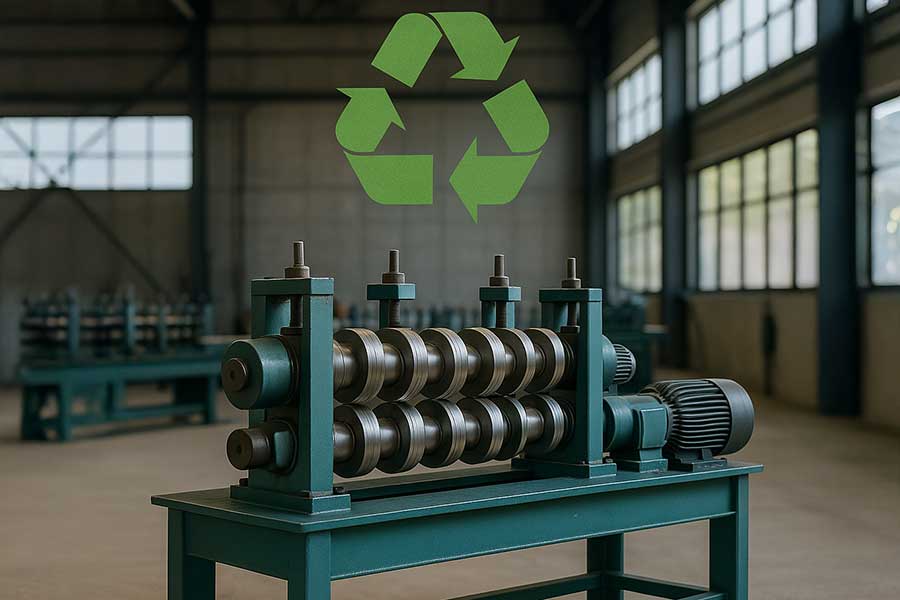
Today, one of the most important agenda items of industrial production is to minimize environmental impact and use resources efficiently. In this context, roll forming machines stand out with the sustainability and recycling potential they offer. This technology, which is widely used in the metal forming industry, both supports environmentally friendly approaches in production processes and facilitates the use of recycled materials.
Sustainability means meeting the needs of the present without jeopardizing the needs of future generations. Adopting this principle in production processes includes important steps such as conserving resources, increasing energy efficiency and reducing the amount of waste. Roll forming machines offer an inherently sustainable method of production.
Sustainability Advantages of Roll Forming Processes:
- High Material Efficiency: Roll forming creates minimal waste while shaping the material. Less waste compared to some other production methods contributes to the conservation of natural resources.
- Low Energy Consumption: Thanks to the fact that it is a continuous process and the principle of gradual forming, roll forming processes generally consume less energy than other metal forming methods. This, in turn, helps to reduce the carbon footprint.
- Use of Recycled Materials: Roll-forming machines can process recycled metal materials. This feature allows the amount of waste to be reduced and the pressure on natural resources to be relieved.
- Long-Lasting Products: Structural elements and profiles produced with roll form are generally long-lasting. This contributes to resource savings by reducing the need for frequent product replacements.
The Role of Recycling in Roll Forming Machines:
Roll forming processes are an important part of the recycling cycle:
- Recyclable Products: Metal parts produced with roll form can be easily recycled at the end of their useful life. The ability of metal to be used repeatedly is of great importance for the protection of natural resources.
- Recyclable Design: Roll-form technology allows for designs that facilitate the disassembly of products and the separation of their components. This, in turn, makes recycling processes more efficient.
- Recovery of Production Wastes: Metal residues and wastes generated in the roll form production process can be recycled by remelting or using them for different purposes. This reduces the amount of waste and increases resource efficiency.
Sustainable Practices in Roll Forming Machines:
- Optimization of Material Use: Minimizing the use of materials by using advanced design software and simulation techniques.
- Energy Efficient Machinery and Equipment: Using modern roll forming machines and control systems that consume less energy.
- Closed Loop Recycling Systems: Establishing systems to recycle or reuse metal waste generated in the production facility on-site.
- Long-Lasting and Recyclable Product Design: Developing designs that will enable products to be used for a longer period of time and to be easily recycled at the end of their useful life.
- Waste Management and Reduction: To work for the correct management and recycling of all wastes (oils, packaging materials, etc.) in the production process.
Economic Benefits of Sustainability:
The adoption of sustainable practices in roll forming machines not only provides environmental benefits, but also economic advantages:
- Low Raw Material Costs: Raw material costs are reduced by using recycled materials and increasing material efficiency.
- Reduced Waste Disposal Costs: Less waste generation results in significant savings in waste disposal fees.
- Energy Saving: Less energy consumption reduces the energy bills of businesses.
- Strengthening the Brand Image: Environmentally friendly production practices create a positive image in the eyes of the customer and provide competitive advantage.
Result:
Roll forming machines play an important role in achieving sustainable production goals. It is an environmentally friendly production method thanks to its high material efficiency, low energy consumption and the use of recycled materials. Businesses adopting this technology and implementing sustainable practices will both contribute to the protection of our environment and provide economic benefits in the long run.
